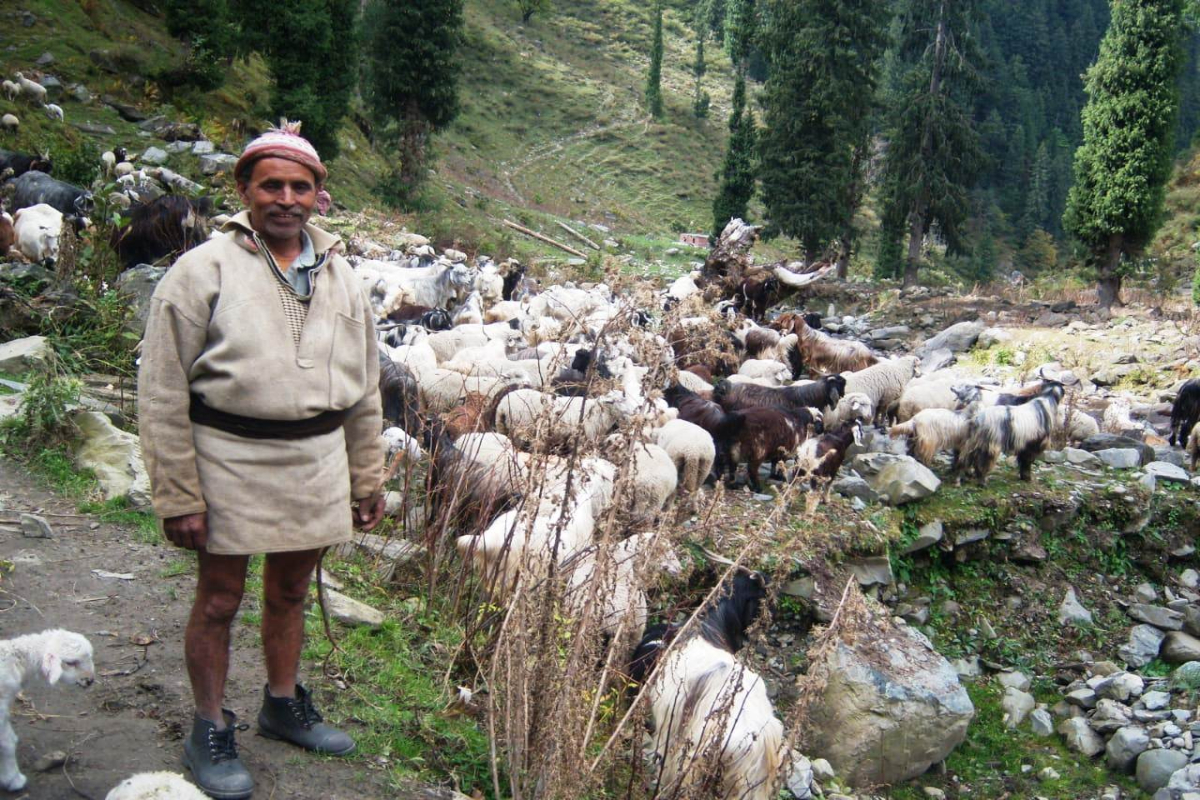With sheep rearing in Himachal Pradesh becoming a significant component of the rural economy, the state government is initiating measures to uplift the livelihood of the pastoralists.
The HP Wool Federation spokesperson said here on Sunday that sheep rearing has become an important source of livelihood for a large percentage of small and marginal farmers and those engaged in sheep rearing in rural and tribal regions of the state.
Advertisement
The main breeds of sheep in the state are the Gaddi sheep and Rampur Bushahri breed. The former has a native tract in Chamba, Kullu, Kangra, and Mandi while the latter has its native tract in Kinnaur, Rampur, and Shimla, he informed.
“It is a matter of pride that some private players are also investing in the organic certification and other certifications like RWS (Responsible Wool Standards) of the Himachali wool in some parts of the state and catering to the small markets in the West,” he said.
The total sheep population of the state as per the Livestock Census 2019 is 7,91,345 wherein the exotic breed accounts for 72,821 and the number of indigenous breeds stands at 7,18,524, he added.
Being a reliable source of income to the shepherds through the sale of wool, animals, its meat, manure, milk, and skin, the Himachal Pradesh State Wool Federation, an apex cooperative institution, is playing a major role in strengthening the pastoralists with an aim to save wool growers from exploitation by the middlemen and traders, he said.
Besides providing the technical and mechanical sheep shearing facilities to the breeders, the federation is also maintaining a revolving fund of Rs 133.39 crore earmarked for the procurement of wool from the shepherds alongside providing remunerative rates to them, he added.
The procurement ranges from 125 to 150 MT depending upon the market, he said, adding that the sheep breeders are also provided on-the-spot payment for this.
The spokesperson further disclosed that the total wool production in Himachal Pradesh is 15.50 lakh kg, which comes to an average of around 1.9 kg per sheep. The prevalent rate of white wool ranges from Rs 71.50 per kg to Rs 34.10 per kg and for black wool it is Rs 45 per kg to Rs 25.50 per kg. Further, the Federation provides 20 per cent higher rates in the case of white crossbred wool in order to motivate sheep breeders to adopt a cross-breeding program of sheep and to keep pace with the demand of the industry for apparel-grade wool, stated the spokesperson.
The Wool Federation is also providing mechanical sheep shearing facilities to the sheep breeders of the state at village, pasture, and forest levels, at subsidized rates ranging from Rs 11 to Rs 13 per sheep. Mechanical sheep shearing besides being time effective is also animal friendly, he said, adding that this facility is being provided with the help of trained and experienced sheep shearers.
Jai Singh, a progressive sheep breeder from village Deol of Holi in Chamba district informed that he sells about 900 to 1000 kg of crossbred wool to the federation at the rate of Rs 85.80 per kg.
The shearing teams of Woolfed shear their wool in Bharmour and are of immense help to them without it they cannot think of rearing a flock of 800 sheep nowadays when the traditional hand shearers are in scarcity and are charging Rs 25 to Rs 30 per sheep.
Mohinder Thakur, another sheep breeder from Chhota-Bhangal in Kangra district, informed that he migrates to Ramshehar near Nalagarh in winter with his flock of about 300 sheep.
The federation provides sheep shearing facilities in their forest near Ramshehar and also organizes training camps regularly which help them interact with the local veterinarians and administration for redressal of their problems, he said.









